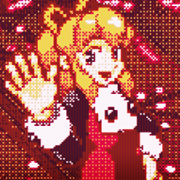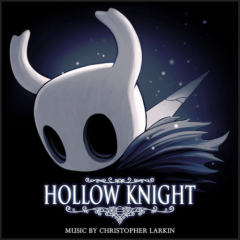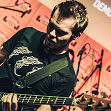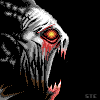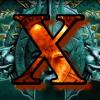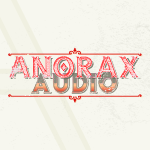-
Posts
9,506 -
Joined
-
Last visited
-
Days Won
179
Reputation Activity
-
 DarkeSword got a reaction from LuckyXIII in OCR monetizing mixes on YouTube
DarkeSword got a reaction from LuckyXIII in OCR monetizing mixes on YouTube
I'm going to close this thread up. A spirited discussion to be sure, but @djpretzel indicated what the next steps are going to be for OCR with regards to shifting ads over to YouTube.
I don't think it's healthy for us to sit around and do a post-mortem of the arguments/discussion. Let's get back to talking about video games, music, and video game music.
-
 DarkeSword got a reaction from Platonist in OCR monetizing mixes on YouTube
DarkeSword got a reaction from Platonist in OCR monetizing mixes on YouTube
I'm going to close this thread up. A spirited discussion to be sure, but @djpretzel indicated what the next steps are going to be for OCR with regards to shifting ads over to YouTube.
I don't think it's healthy for us to sit around and do a post-mortem of the arguments/discussion. Let's get back to talking about video games, music, and video game music.
-
 DarkeSword got a reaction from Kenogu Labz in OCR monetizing mixes on YouTube
DarkeSword got a reaction from Kenogu Labz in OCR monetizing mixes on YouTube
I'm going to close this thread up. A spirited discussion to be sure, but @djpretzel indicated what the next steps are going to be for OCR with regards to shifting ads over to YouTube.
I don't think it's healthy for us to sit around and do a post-mortem of the arguments/discussion. Let's get back to talking about video games, music, and video game music.
-
 DarkeSword reacted to Xarnax42 in Robots vs. Knights
DarkeSword reacted to Xarnax42 in Robots vs. Knights
The teams do matter a bit, of course, if you have one source that you'd like to try multiple approaches with. If you're Team Robots, for example, you'll get your one Mega Man source three times, and three Shovel Knight sources one time each.
-
 DarkeSword got a reaction from Chernabogue in OCR monetizing mixes on YouTube
DarkeSword got a reaction from Chernabogue in OCR monetizing mixes on YouTube
I'm going to close this thread up. A spirited discussion to be sure, but @djpretzel indicated what the next steps are going to be for OCR with regards to shifting ads over to YouTube.
I don't think it's healthy for us to sit around and do a post-mortem of the arguments/discussion. Let's get back to talking about video games, music, and video game music.
-
 DarkeSword got a reaction from TheChargingRhino in Robots vs. Knights
DarkeSword got a reaction from TheChargingRhino in Robots vs. Knights
Keep in mind, because of the way this competition is set up, nearly all of the remixes you write with include a Mega Man source and a Shovel Knight source. Being on the Robots team won't mean you'll only be remixing Mega Man tunes, and the same goes for the Knights team with Shovel Knight tunes.
-
 DarkeSword got a reaction from Jorito in OCR monetizing mixes on YouTube
DarkeSword got a reaction from Jorito in OCR monetizing mixes on YouTube
I'm going to close this thread up. A spirited discussion to be sure, but @djpretzel indicated what the next steps are going to be for OCR with regards to shifting ads over to YouTube.
I don't think it's healthy for us to sit around and do a post-mortem of the arguments/discussion. Let's get back to talking about video games, music, and video game music.
-
 DarkeSword got a reaction from Chimpazilla in OCR monetizing mixes on YouTube
DarkeSword got a reaction from Chimpazilla in OCR monetizing mixes on YouTube
I'm going to close this thread up. A spirited discussion to be sure, but @djpretzel indicated what the next steps are going to be for OCR with regards to shifting ads over to YouTube.
I don't think it's healthy for us to sit around and do a post-mortem of the arguments/discussion. Let's get back to talking about video games, music, and video game music.
-
 DarkeSword got a reaction from KingTiger in OCR monetizing mixes on YouTube
DarkeSword got a reaction from KingTiger in OCR monetizing mixes on YouTube
I'm going to close this thread up. A spirited discussion to be sure, but @djpretzel indicated what the next steps are going to be for OCR with regards to shifting ads over to YouTube.
I don't think it's healthy for us to sit around and do a post-mortem of the arguments/discussion. Let's get back to talking about video games, music, and video game music.
-
 DarkeSword reacted to Chimpazilla in OCR monetizing mixes on YouTube
DarkeSword reacted to Chimpazilla in OCR monetizing mixes on YouTube
I have to call this out. What total bullshit this statement is. You started this, which ultimately I think was a good thing because it got the ball rolling on some good things, but you set the angry and accusatory tone right from post #1 and maintained it for 14 pages of thread. We are all getting too old for this.
Are you even serious? Dave began providing solid, undeniable answers right from the start. You continued screaming.
They are pissed at you because you made incredibly insulting and darn-near libel-worthy accusations claiming you had actual evidence. You dragged OCR and Dave specifically through the mud, and not just here.
Whatever. You need to clean up your act in a very big way. You had Dave on the border of insanity yesterday and I'm REALLY not ok with that. I'm sorry but this just needs to be said.
-
 DarkeSword got a reaction from The Nikanoru in OC ReMix on Spotify?
DarkeSword got a reaction from The Nikanoru in OC ReMix on Spotify?
Two things: first, you're severely underestimating the amount of work involved in obtaining licensing for the entire catalog of OC ReMix. We have nearly 1000 games represented in the catalog of individually posted remixes. We're well aware of Loudr and what they do, and even relying on an external service would still require too much work to obtain licensing for every last remix. This is not a "moderate amount of effort."
Second, and more importantly: stop invoking the site's mission to make your case. Here's our mission:
Appreciate and honor video game composers and their music Encourage artistic expression and development through fan arrangements Preserve and promote video game music of the past and present Provide resources and connections for the game composers of tomorrow Distribute great, free music to the world The last point seems to be what you're hung up on. But here's the thing:
We provide free direct and torrent downloads of all of our music. We have every individual ReMix posted in full to our YouTube channel (~112K subscribers). We post all of our albums to Soundcloud (~7K Followers) We promote all of our music on Twitter (~28K Followers) and Facebook (~53K Likes). We go to conventions and events throughout the year (upcoming: Otakon next weekend, PAX West and MAGLabs in Sept, etc.) to do panels and give out CDs. We're doing a great job of staying true to our mission. Would Spotify be a nice way to capture more listeners? Sure. But don't pretend for a second that not having the music on Spotify means we aren't doing our job. This is not about us doing our job well, this is about your convenience.
This thread was made 6 years ago. We didn't forget about Spotify. We're not ignorant of the modern streaming landscape and how it's evolved over the years. We've evaluated these venues and made the determination that it's not worth pursuing. There are better uses of our limited time; time that, by the way, none of us are compensated for.
-
 DarkeSword got a reaction from TheChargingRhino in OC ReMix on Spotify?
DarkeSword got a reaction from TheChargingRhino in OC ReMix on Spotify?
Two things: first, you're severely underestimating the amount of work involved in obtaining licensing for the entire catalog of OC ReMix. We have nearly 1000 games represented in the catalog of individually posted remixes. We're well aware of Loudr and what they do, and even relying on an external service would still require too much work to obtain licensing for every last remix. This is not a "moderate amount of effort."
Second, and more importantly: stop invoking the site's mission to make your case. Here's our mission:
Appreciate and honor video game composers and their music Encourage artistic expression and development through fan arrangements Preserve and promote video game music of the past and present Provide resources and connections for the game composers of tomorrow Distribute great, free music to the world The last point seems to be what you're hung up on. But here's the thing:
We provide free direct and torrent downloads of all of our music. We have every individual ReMix posted in full to our YouTube channel (~112K subscribers). We post all of our albums to Soundcloud (~7K Followers) We promote all of our music on Twitter (~28K Followers) and Facebook (~53K Likes). We go to conventions and events throughout the year (upcoming: Otakon next weekend, PAX West and MAGLabs in Sept, etc.) to do panels and give out CDs. We're doing a great job of staying true to our mission. Would Spotify be a nice way to capture more listeners? Sure. But don't pretend for a second that not having the music on Spotify means we aren't doing our job. This is not about us doing our job well, this is about your convenience.
This thread was made 6 years ago. We didn't forget about Spotify. We're not ignorant of the modern streaming landscape and how it's evolved over the years. We've evaluated these venues and made the determination that it's not worth pursuing. There are better uses of our limited time; time that, by the way, none of us are compensated for.
-
 DarkeSword got a reaction from TheChargingRhino in Robots vs. Knights
DarkeSword got a reaction from TheChargingRhino in Robots vs. Knights
Hey guys; posted a callout for help with visual identity and branding for RvK over on my tumblr. Quoting here:
As many of you know, I have pretty high standards for artwork on my projects (albums and competitions). I'm looking for someone with a very strong sense of good design. This is more than just a "draw some pictures" gig.
-
 DarkeSword got a reaction from Eino Keskitalo in Robots vs. Knights
DarkeSword got a reaction from Eino Keskitalo in Robots vs. Knights
Hey guys; posted a callout for help with visual identity and branding for RvK over on my tumblr. Quoting here:
As many of you know, I have pretty high standards for artwork on my projects (albums and competitions). I'm looking for someone with a very strong sense of good design. This is more than just a "draw some pictures" gig.
-
 DarkeSword got a reaction from Black_Doom in Using Thread Tags in the Recruit & Collaborate Forum
DarkeSword got a reaction from Black_Doom in Using Thread Tags in the Recruit & Collaborate Forum
We've standardized how we use thread tags here because the way people have been using them aren't actually helpful. You can no longer add your own custom tags to threads. You'll be selecting from a list. Here are the tags and what they mean:
album
If your project is an album. remixer
If you're looking for remixers. artist
If you're looking for an artist to draw cover or insert art. video editor
If you're looking for a video editor to work on a trailer or promotional video for you. composer
If you're looking for a composer for some kind of non-album project, like a game. vocalist
If you're looking for someone to sing for you. instrumentalist
If you're looking for someone to play an instrument for you. engineer
If you're looking for someone to handle the technical aspects of music production for you, like mixing and mastering. director
If you're looking for someone to manage a project for you. This is a catch-all term for co-directors and assistant directors as well. web designer
If you're looking for someone to build a website for your project. lyricist
If you're looking for something to write lyrics for a song. voice actor
If you're looking for someone to provide spoken word or acting for your project. -
 DarkeSword got a reaction from HoboKa in Robots vs. Knights
DarkeSword got a reaction from HoboKa in Robots vs. Knights
Introduction
Past and future collide as two factions clash in the greatest musical battle the world has ever seen. Armored heroes meet metal warriors on the battlefield of wailing guitars, dirty drops, and soaring strings. Get ready, ladies and gentlemen, it’s time for Robots vs. Knights!
Current News
MUSIC FOR THE FINAL BATTLE IS UP! Round 9: One vs. One Final Battle
Team Robot Team Knight Squad Artist Source vs Source Artist Squad Rush Squad Gario Ballade vs Wandering Travelers JohnStacy Armor Squad Rush Squad Starpheonix Enker vs Shield Knight GCJ Armor Squad Rush Squad Thirdkoopa Mercury vs Shovel Knight Jorito Relic Squad Tango Squad Chiwalker Uranus vs Polar Knight theshaggyfreak Shovel Squad Tango Squad Yami Pluto vs Plague Knight akalink Armor Squad Tango Squad Ronald Poe Mars vs Propeller Knight Anorax Shovel Squad Beat Squad Trism Saturn vs Spectre Knight PlanarianHugger Shovel Squad Beat Squad Xenonetix Punk vs King Knight Dewey Newt Relic Squad Beat Squad MegaDrive Venus vs Mole Knight Arrow Relic Squad Remixes are due Sunday, June 18th at 9 PM EDT.
All competitors will compose and produce remixes that combine both sources into one, cohesive piece of music. Collaboration with teammates is allowed, but the primary artists should be the competitors listed in the table above. All competitors are encouraged (but not required) to share WIPs with teammates in order to get constructive feedback. Good luck and happy mixing.
A lot of team discussion is happening on the OC ReMix Discord, be sure to make yourselves available.
As always, all participants (competitors and voters) are expected to adhere to the Competitions Code of Conduct.
Scoreboard
Battle Team Knight Team Robot Ballade vs Shovel Knight 2 0 Uranus vs Propeller Knight 0 2 Saturn vs Plague Knight 2 0 Enker vs Polar Knight 0 2 Pluto vs King Knight 0 2 Punk vs Shield Knight 2 0 Mercury vs Spectre Knight 0 2 Mars vs Mole Knight 0 0 Venus vs Wandering Travelers 0 2 Boss Battle vs Tinker Knight 0 9 Total 6 19 Teams
Team Knight
Artist Source Squad Anorax Propeller Knight Shovel Squad theshaggyfreak Polar Knight Shovel Squad PlanarianHugger Spectre Knight Shovel Squad akalink Plague Knight Armor Squad GCJ Shield Knight Armor Squad JohnStacy Wandering Travelers Armor Squad Jorito Shovel Knight Relic Squad Dewey Newt King Knight Relic Squad Arrow Mole Knight Relic Squad Team Robot
Artist Source Squad Gario Ballade Rush Squad Starpheonix Enker Rush Squad Thirdkoopa Mercury Rush Squad Chiwalker Uranus Tango Squad Yami Pluto Tango Squad Ronald Poe Mars Tango Squad Trism Saturn Beat Squad Xenonetix Punk Beat Squad MegaDrive Venus Beat Squad Releases
Round 1: Squad vs. Squad Block 1 Round 2: Squad vs. Squad Block 1 Round 3: Squad vs. Squad Block 1 Round 4: Boss Battle 1 Rounds 5-8: Block 2 Round 9: One vs. One Final Battle About
Robots vs. Knights (RvK) is a Team vs. Team competition. It’s a new format that I’ve been developing for a couple of months now, combining elements of the head-to-head battles of the Remix Battle tournaments (GRMRB, etc.) with the teamwork aspect of Gauntlet tournaments (WCRG, etc.). Here’s the full breakdown of how it’s going to work.
Sign-ups 18 people sign up. I’ll divide everyone into 2 teams of 9. I’ll be assigning people to their respective teams in order to ensure a balanced competition. Each team will be given a pool of sources to select from. Team members will decide how to assign sources themselves. I won’t be running a draft. Team Robots will be given a selection of sources from the Mega Man Game Boy games. Team Knights will be given a selection of sources from Shovel Knight. Each team will form 3 squads of 3 members each. The squad will be your group that you’ll rotate with throughout the competition, similar to the teams from gauntlet competitions. Squad-vs-Squad Battle 1 The first 3 rounds are squad-vs-squad battles. Each squad will decide their remixing order for the first three rounds and provide that to me. Each round, I’ll post 3 match-ups between squads on opposing teams. Each squad’s artist will submit a remix that uses their selected source and the opposing squad’s selected source. At the end of each round, artists send their remixes to me, I’ll put the tracks up, and people will vote. Each victory will earn points for the team. Boss Battle 1 The 4th round is a boss battle. I’ll post a boss theme source. All 6 squads will submit a remix that combines the boss theme with one of the squad’s sources. Any member of the squad can be the primary artist. The primary artist is not required to use their own personal source; they can use any of their squad’s 3 sources. At the end of the round, voters will select their 3 favorite remixes, unranked. The team that has the most selections at the end of the voting period will choose between two rewards: a chunk of points, or the right to counterpick in the next block of squad-vs-squad battles. Break 1 While votes are being collected for Boss Battle 1, we will take a week-long break, using the time to review remixes from past rounds. Squad-vs-Squad Battle 2 The next 3 rounds are squad-vs-squad battles. If a team has the right to counterpick, they’ll be provided the opposing team’s remixing orders first before determining their remixing orders. I will still determine the actual match-ups based on the updated remixing orders. The 3 rounds of squad-vs-squad battles are conducted as before. Boss Battle 2 The 8th round is another boss battle, conducted in the same way as the previous boss battle round. Break 2 While votes are being collected for Boss Battle 2, we will take a week-long break, using the time to review remixes from past rounds. One-vs-One Battle The 9th and final round is comprised of 9 one-on-one battles. If a team has earned the right to counterpick from the previous round, they’ll be allowed to determine the 9 match-ups; rematches of previous battles from the squad-vs-squad blocks are not allowed. If no team has counterpick, I’ll determine the match-ups. Each artist will be responsible for writing a remix that uses their selected source and their opponent’s source. At the end of the round, remixes will be submitted and voted on. The team with the most victories will earn a large chunk of points. The team with the most points at the end of the competition wins. Submissions and File Name Rules
Submission
All entries must be sent to me (DarkeSword) via PM on the forums. Please include your team name, squad name, and the round number in the subject line of your PM. I encode all MP3s myself, so please send me your submissions in 16bit, 44.1KHz WAV format. Don’t send MP3s.
Please do not use MediaFire, RapidShare, or any other ad-ridden public sharing site as a host for your entry. There are many better options you can and should be using to host your music. I recommend Dropbox or SoundCloud. Make sure your files are downloadable.
File Names
If you worked on the remix without the help of your teammates:
Team Robots - DarkeSword - Be Cool, Man (Ice Man vs. Polar Knight).wav If one team member helps you with your entry in a significant way and you want to give them credit, add their name as follows:
Team Robots - DarkeSword feat. Neblix - Be Cool, Man (Ice Man vs. Polar Knight).wav If more than one team members help you with your entry in a significant way and you want to give them credit, add their names as follows:
Team Robots - DarkeSword feat. Neblix, Liontamer - Be Cool, Man (Ice Man vs. Polar Knight).wav Notes
Make sure you’re using proper capitalization for team names and character names. Put spaces on both sides of the hyphens between Team Name, Artist, and Title. If your remix’s title has special punctuation that you can’t include in the file name (e.g. \ / : \* ? " < > |), please let me know in your submission PM so I can include the correct title in the tags. Please follow the file name format exactly; I use the file names to make sure that all the metadata is correct when I tag the MP3s. It’s a massive pain sitting there renaming, re-spacing, and reformatting so that everything works properly with mp3tag’s file-name-to-tag tools, and ultimately it means that when you all do it right, I can get the music up for voting way faster.
Voting Rules and Guidelines
Voting is conducted publicly in the Public Voting forum. Every week, a thread will be created for the most recently completed round of remixing. Because RvK has two different types of rounds (squad-vs-squad and boss battle), please make sure you read and follow the instructions in the voting thread.
Things to keep in mind when voting:
The most important thing to consider when voting is how well the remix incorporates and arranges both themes. Production and enjoyability should also be considered, but this is primarily an arrangement competition. Everyone is allowed (and encouraged) to vote, including competitors. Everyone must adhere to the Competitions Code of Conduct. FAQ
This is pretty interesting, but why are you doing this instead of just another Tournament or Gauntlet?
The philosophy behind RvK is to create an environment where more artists will be working together to help and learn from each other. I want to tap into the spirit of teamwork and collaboration in a bigger way this tournament. Rather than just having two friends working on tracks with you week to week, you’ll have eight other teammates that you can use as resources.
What do you mean by resources?
In the past, I’ve tried to limit the amount of collaboration allowed in competitions because I wanted to make sure that people were putting forth a concerted effort to grow as artists on their own. While we’ll still be adhering to the idea of a Primary Artist for each remix in RvK, some of the limitations will be relaxed. Artists will be able to get help from all 8 of their teammates. This includes production help, session instruments, and arrangement feedback. The Primary Artist will still be responsible for the bulk of the work that goes into a remix, but they’ll have a lot more help in getting that remix polished up.
How many remixes do I have to write?
You will be responsible for at least 3 remixes: 2 remixes from the squad-vs-squad battles, and 1 remix in the final battle. You may also be responsible for any of the boss battle remixes, but that will be up to your team.
Why can’t we choose our own teams?
I’m going to determine the teams based on skill level in order to ensure fairness across the board. I want both teams to have a healthy balance between novices and veterans.
Do we get to pick team names or squad names?
No. The two teams will be known as Team Robots and Team Knights. I will also be setting the squad names which will be revealed once we get the competition started.
I really want to be on Team Robots/Team Knights! Can you put me on that team?
I’ll consider your preference but I can’t guarantee anything.
Notes
Stardroid sprites used in Team Robot sigs were colorized by onyx801.
-
 DarkeSword got a reaction from timaeus222 in OC ReMix on Spotify?
DarkeSword got a reaction from timaeus222 in OC ReMix on Spotify?
Two things: first, you're severely underestimating the amount of work involved in obtaining licensing for the entire catalog of OC ReMix. We have nearly 1000 games represented in the catalog of individually posted remixes. We're well aware of Loudr and what they do, and even relying on an external service would still require too much work to obtain licensing for every last remix. This is not a "moderate amount of effort."
Second, and more importantly: stop invoking the site's mission to make your case. Here's our mission:
Appreciate and honor video game composers and their music Encourage artistic expression and development through fan arrangements Preserve and promote video game music of the past and present Provide resources and connections for the game composers of tomorrow Distribute great, free music to the world The last point seems to be what you're hung up on. But here's the thing:
We provide free direct and torrent downloads of all of our music. We have every individual ReMix posted in full to our YouTube channel (~112K subscribers). We post all of our albums to Soundcloud (~7K Followers) We promote all of our music on Twitter (~28K Followers) and Facebook (~53K Likes). We go to conventions and events throughout the year (upcoming: Otakon next weekend, PAX West and MAGLabs in Sept, etc.) to do panels and give out CDs. We're doing a great job of staying true to our mission. Would Spotify be a nice way to capture more listeners? Sure. But don't pretend for a second that not having the music on Spotify means we aren't doing our job. This is not about us doing our job well, this is about your convenience.
This thread was made 6 years ago. We didn't forget about Spotify. We're not ignorant of the modern streaming landscape and how it's evolved over the years. We've evaluated these venues and made the determination that it's not worth pursuing. There are better uses of our limited time; time that, by the way, none of us are compensated for.
-
 DarkeSword reacted to Nabeel Ansari in OC ReMix on Spotify?
DarkeSword reacted to Nabeel Ansari in OC ReMix on Spotify?
1) They are full of licensed fan arrangements. Just because the distinction doesn't cross your mind doesn't mean there isn't a clear legal difference.
2) Loudr does not have the resources to license the entire catalog of source tunes that OCR pulls from in any reasonable timeframe, assuming it was even possible using their methods, which it isn't as @Flexstyle said. Loudr is run by like 20 people. And they're not gonna dedicate their company's resources for the next few years to getting all of OCR's catalog able to be streamed. They would get nothing out of it.
3) There is no will, nor are there resources or infrastructure, and there is no way.
4) Unlicensed arrangements aren't a "legal grey area", it is copyright infringement, and when monetizing for commercial profit has 0% chance of being defended as Fair Use (this is according to the SCOTUS). No one's "flying under the radar", and we're not trying to "prevent being noticed". Everyone (nintendo, square enix, sega, capcom, etc.) knows about OCR, and they let us continue, because all of our community output is free and voluntary.
5) Generating revenue based on the work of hundreds and hundreds of artists and putting it "toward the site" is one of the most terrifying recipes for legal nightmares I've ever heard of.
If you are so certain that you have the right answers on how to benefit the community and are so sure that setting up the required financial and legal infrastructure for all of these efforts is "moderate effort" (it's not), then stop whining and contact DJP directly to talk about getting involved with the community and get these efforts going yourself.
-
 DarkeSword reacted to Flexstyle in OC ReMix on Spotify?
DarkeSword reacted to Flexstyle in OC ReMix on Spotify?
Plus, Loudr will only be able to license songs that have seen a physical release here in the USA. Something as iconic as, say, even the Punch Out theme doesn't count -- I know because I released an album that had to drop a song before it could be released. It's not a magical, one-size-fits all solution -- you can immediately forget about most of the slightly more obscure games that the OCR catalog is filled with!
-
 DarkeSword reacted to Liontamer in OC ReMix on Spotify?
DarkeSword reacted to Liontamer in OC ReMix on Spotify?
It's more about source tunes than even the number of games. Just a rough check it our database puts the current amount of different songs that have been referenced in OC ReMixes at 2,689 songs. We're definitely not going through that.
-
 DarkeSword got a reaction from BardicKnowledge in Batman: The Killing Joke
DarkeSword got a reaction from BardicKnowledge in Batman: The Killing Joke
Tara Strong is pretty great as Harley, but let's not forget that she's essentially just doing Arleen Sorkin's Harley.
-
 DarkeSword got a reaction from djpretzel in Robots vs. Knights
DarkeSword got a reaction from djpretzel in Robots vs. Knights
Introduction
Past and future collide as two factions clash in the greatest musical battle the world has ever seen. Armored heroes meet metal warriors on the battlefield of wailing guitars, dirty drops, and soaring strings. Get ready, ladies and gentlemen, it’s time for Robots vs. Knights!
Current News
MUSIC FOR THE FINAL BATTLE IS UP! Round 9: One vs. One Final Battle
Team Robot Team Knight Squad Artist Source vs Source Artist Squad Rush Squad Gario Ballade vs Wandering Travelers JohnStacy Armor Squad Rush Squad Starpheonix Enker vs Shield Knight GCJ Armor Squad Rush Squad Thirdkoopa Mercury vs Shovel Knight Jorito Relic Squad Tango Squad Chiwalker Uranus vs Polar Knight theshaggyfreak Shovel Squad Tango Squad Yami Pluto vs Plague Knight akalink Armor Squad Tango Squad Ronald Poe Mars vs Propeller Knight Anorax Shovel Squad Beat Squad Trism Saturn vs Spectre Knight PlanarianHugger Shovel Squad Beat Squad Xenonetix Punk vs King Knight Dewey Newt Relic Squad Beat Squad MegaDrive Venus vs Mole Knight Arrow Relic Squad Remixes are due Sunday, June 18th at 9 PM EDT.
All competitors will compose and produce remixes that combine both sources into one, cohesive piece of music. Collaboration with teammates is allowed, but the primary artists should be the competitors listed in the table above. All competitors are encouraged (but not required) to share WIPs with teammates in order to get constructive feedback. Good luck and happy mixing.
A lot of team discussion is happening on the OC ReMix Discord, be sure to make yourselves available.
As always, all participants (competitors and voters) are expected to adhere to the Competitions Code of Conduct.
Scoreboard
Battle Team Knight Team Robot Ballade vs Shovel Knight 2 0 Uranus vs Propeller Knight 0 2 Saturn vs Plague Knight 2 0 Enker vs Polar Knight 0 2 Pluto vs King Knight 0 2 Punk vs Shield Knight 2 0 Mercury vs Spectre Knight 0 2 Mars vs Mole Knight 0 0 Venus vs Wandering Travelers 0 2 Boss Battle vs Tinker Knight 0 9 Total 6 19 Teams
Team Knight
Artist Source Squad Anorax Propeller Knight Shovel Squad theshaggyfreak Polar Knight Shovel Squad PlanarianHugger Spectre Knight Shovel Squad akalink Plague Knight Armor Squad GCJ Shield Knight Armor Squad JohnStacy Wandering Travelers Armor Squad Jorito Shovel Knight Relic Squad Dewey Newt King Knight Relic Squad Arrow Mole Knight Relic Squad Team Robot
Artist Source Squad Gario Ballade Rush Squad Starpheonix Enker Rush Squad Thirdkoopa Mercury Rush Squad Chiwalker Uranus Tango Squad Yami Pluto Tango Squad Ronald Poe Mars Tango Squad Trism Saturn Beat Squad Xenonetix Punk Beat Squad MegaDrive Venus Beat Squad Releases
Round 1: Squad vs. Squad Block 1 Round 2: Squad vs. Squad Block 1 Round 3: Squad vs. Squad Block 1 Round 4: Boss Battle 1 Rounds 5-8: Block 2 Round 9: One vs. One Final Battle About
Robots vs. Knights (RvK) is a Team vs. Team competition. It’s a new format that I’ve been developing for a couple of months now, combining elements of the head-to-head battles of the Remix Battle tournaments (GRMRB, etc.) with the teamwork aspect of Gauntlet tournaments (WCRG, etc.). Here’s the full breakdown of how it’s going to work.
Sign-ups 18 people sign up. I’ll divide everyone into 2 teams of 9. I’ll be assigning people to their respective teams in order to ensure a balanced competition. Each team will be given a pool of sources to select from. Team members will decide how to assign sources themselves. I won’t be running a draft. Team Robots will be given a selection of sources from the Mega Man Game Boy games. Team Knights will be given a selection of sources from Shovel Knight. Each team will form 3 squads of 3 members each. The squad will be your group that you’ll rotate with throughout the competition, similar to the teams from gauntlet competitions. Squad-vs-Squad Battle 1 The first 3 rounds are squad-vs-squad battles. Each squad will decide their remixing order for the first three rounds and provide that to me. Each round, I’ll post 3 match-ups between squads on opposing teams. Each squad’s artist will submit a remix that uses their selected source and the opposing squad’s selected source. At the end of each round, artists send their remixes to me, I’ll put the tracks up, and people will vote. Each victory will earn points for the team. Boss Battle 1 The 4th round is a boss battle. I’ll post a boss theme source. All 6 squads will submit a remix that combines the boss theme with one of the squad’s sources. Any member of the squad can be the primary artist. The primary artist is not required to use their own personal source; they can use any of their squad’s 3 sources. At the end of the round, voters will select their 3 favorite remixes, unranked. The team that has the most selections at the end of the voting period will choose between two rewards: a chunk of points, or the right to counterpick in the next block of squad-vs-squad battles. Break 1 While votes are being collected for Boss Battle 1, we will take a week-long break, using the time to review remixes from past rounds. Squad-vs-Squad Battle 2 The next 3 rounds are squad-vs-squad battles. If a team has the right to counterpick, they’ll be provided the opposing team’s remixing orders first before determining their remixing orders. I will still determine the actual match-ups based on the updated remixing orders. The 3 rounds of squad-vs-squad battles are conducted as before. Boss Battle 2 The 8th round is another boss battle, conducted in the same way as the previous boss battle round. Break 2 While votes are being collected for Boss Battle 2, we will take a week-long break, using the time to review remixes from past rounds. One-vs-One Battle The 9th and final round is comprised of 9 one-on-one battles. If a team has earned the right to counterpick from the previous round, they’ll be allowed to determine the 9 match-ups; rematches of previous battles from the squad-vs-squad blocks are not allowed. If no team has counterpick, I’ll determine the match-ups. Each artist will be responsible for writing a remix that uses their selected source and their opponent’s source. At the end of the round, remixes will be submitted and voted on. The team with the most victories will earn a large chunk of points. The team with the most points at the end of the competition wins. Submissions and File Name Rules
Submission
All entries must be sent to me (DarkeSword) via PM on the forums. Please include your team name, squad name, and the round number in the subject line of your PM. I encode all MP3s myself, so please send me your submissions in 16bit, 44.1KHz WAV format. Don’t send MP3s.
Please do not use MediaFire, RapidShare, or any other ad-ridden public sharing site as a host for your entry. There are many better options you can and should be using to host your music. I recommend Dropbox or SoundCloud. Make sure your files are downloadable.
File Names
If you worked on the remix without the help of your teammates:
Team Robots - DarkeSword - Be Cool, Man (Ice Man vs. Polar Knight).wav If one team member helps you with your entry in a significant way and you want to give them credit, add their name as follows:
Team Robots - DarkeSword feat. Neblix - Be Cool, Man (Ice Man vs. Polar Knight).wav If more than one team members help you with your entry in a significant way and you want to give them credit, add their names as follows:
Team Robots - DarkeSword feat. Neblix, Liontamer - Be Cool, Man (Ice Man vs. Polar Knight).wav Notes
Make sure you’re using proper capitalization for team names and character names. Put spaces on both sides of the hyphens between Team Name, Artist, and Title. If your remix’s title has special punctuation that you can’t include in the file name (e.g. \ / : \* ? " < > |), please let me know in your submission PM so I can include the correct title in the tags. Please follow the file name format exactly; I use the file names to make sure that all the metadata is correct when I tag the MP3s. It’s a massive pain sitting there renaming, re-spacing, and reformatting so that everything works properly with mp3tag’s file-name-to-tag tools, and ultimately it means that when you all do it right, I can get the music up for voting way faster.
Voting Rules and Guidelines
Voting is conducted publicly in the Public Voting forum. Every week, a thread will be created for the most recently completed round of remixing. Because RvK has two different types of rounds (squad-vs-squad and boss battle), please make sure you read and follow the instructions in the voting thread.
Things to keep in mind when voting:
The most important thing to consider when voting is how well the remix incorporates and arranges both themes. Production and enjoyability should also be considered, but this is primarily an arrangement competition. Everyone is allowed (and encouraged) to vote, including competitors. Everyone must adhere to the Competitions Code of Conduct. FAQ
This is pretty interesting, but why are you doing this instead of just another Tournament or Gauntlet?
The philosophy behind RvK is to create an environment where more artists will be working together to help and learn from each other. I want to tap into the spirit of teamwork and collaboration in a bigger way this tournament. Rather than just having two friends working on tracks with you week to week, you’ll have eight other teammates that you can use as resources.
What do you mean by resources?
In the past, I’ve tried to limit the amount of collaboration allowed in competitions because I wanted to make sure that people were putting forth a concerted effort to grow as artists on their own. While we’ll still be adhering to the idea of a Primary Artist for each remix in RvK, some of the limitations will be relaxed. Artists will be able to get help from all 8 of their teammates. This includes production help, session instruments, and arrangement feedback. The Primary Artist will still be responsible for the bulk of the work that goes into a remix, but they’ll have a lot more help in getting that remix polished up.
How many remixes do I have to write?
You will be responsible for at least 3 remixes: 2 remixes from the squad-vs-squad battles, and 1 remix in the final battle. You may also be responsible for any of the boss battle remixes, but that will be up to your team.
Why can’t we choose our own teams?
I’m going to determine the teams based on skill level in order to ensure fairness across the board. I want both teams to have a healthy balance between novices and veterans.
Do we get to pick team names or squad names?
No. The two teams will be known as Team Robots and Team Knights. I will also be setting the squad names which will be revealed once we get the competition started.
I really want to be on Team Robots/Team Knights! Can you put me on that team?
I’ll consider your preference but I can’t guarantee anything.
Notes
Stardroid sprites used in Team Robot sigs were colorized by onyx801.
-
 DarkeSword got a reaction from TheChargingRhino in Robots vs. Knights
DarkeSword got a reaction from TheChargingRhino in Robots vs. Knights
Introduction
Past and future collide as two factions clash in the greatest musical battle the world has ever seen. Armored heroes meet metal warriors on the battlefield of wailing guitars, dirty drops, and soaring strings. Get ready, ladies and gentlemen, it’s time for Robots vs. Knights!
Current News
MUSIC FOR THE FINAL BATTLE IS UP! Round 9: One vs. One Final Battle
Team Robot Team Knight Squad Artist Source vs Source Artist Squad Rush Squad Gario Ballade vs Wandering Travelers JohnStacy Armor Squad Rush Squad Starpheonix Enker vs Shield Knight GCJ Armor Squad Rush Squad Thirdkoopa Mercury vs Shovel Knight Jorito Relic Squad Tango Squad Chiwalker Uranus vs Polar Knight theshaggyfreak Shovel Squad Tango Squad Yami Pluto vs Plague Knight akalink Armor Squad Tango Squad Ronald Poe Mars vs Propeller Knight Anorax Shovel Squad Beat Squad Trism Saturn vs Spectre Knight PlanarianHugger Shovel Squad Beat Squad Xenonetix Punk vs King Knight Dewey Newt Relic Squad Beat Squad MegaDrive Venus vs Mole Knight Arrow Relic Squad Remixes are due Sunday, June 18th at 9 PM EDT.
All competitors will compose and produce remixes that combine both sources into one, cohesive piece of music. Collaboration with teammates is allowed, but the primary artists should be the competitors listed in the table above. All competitors are encouraged (but not required) to share WIPs with teammates in order to get constructive feedback. Good luck and happy mixing.
A lot of team discussion is happening on the OC ReMix Discord, be sure to make yourselves available.
As always, all participants (competitors and voters) are expected to adhere to the Competitions Code of Conduct.
Scoreboard
Battle Team Knight Team Robot Ballade vs Shovel Knight 2 0 Uranus vs Propeller Knight 0 2 Saturn vs Plague Knight 2 0 Enker vs Polar Knight 0 2 Pluto vs King Knight 0 2 Punk vs Shield Knight 2 0 Mercury vs Spectre Knight 0 2 Mars vs Mole Knight 0 0 Venus vs Wandering Travelers 0 2 Boss Battle vs Tinker Knight 0 9 Total 6 19 Teams
Team Knight
Artist Source Squad Anorax Propeller Knight Shovel Squad theshaggyfreak Polar Knight Shovel Squad PlanarianHugger Spectre Knight Shovel Squad akalink Plague Knight Armor Squad GCJ Shield Knight Armor Squad JohnStacy Wandering Travelers Armor Squad Jorito Shovel Knight Relic Squad Dewey Newt King Knight Relic Squad Arrow Mole Knight Relic Squad Team Robot
Artist Source Squad Gario Ballade Rush Squad Starpheonix Enker Rush Squad Thirdkoopa Mercury Rush Squad Chiwalker Uranus Tango Squad Yami Pluto Tango Squad Ronald Poe Mars Tango Squad Trism Saturn Beat Squad Xenonetix Punk Beat Squad MegaDrive Venus Beat Squad Releases
Round 1: Squad vs. Squad Block 1 Round 2: Squad vs. Squad Block 1 Round 3: Squad vs. Squad Block 1 Round 4: Boss Battle 1 Rounds 5-8: Block 2 Round 9: One vs. One Final Battle About
Robots vs. Knights (RvK) is a Team vs. Team competition. It’s a new format that I’ve been developing for a couple of months now, combining elements of the head-to-head battles of the Remix Battle tournaments (GRMRB, etc.) with the teamwork aspect of Gauntlet tournaments (WCRG, etc.). Here’s the full breakdown of how it’s going to work.
Sign-ups 18 people sign up. I’ll divide everyone into 2 teams of 9. I’ll be assigning people to their respective teams in order to ensure a balanced competition. Each team will be given a pool of sources to select from. Team members will decide how to assign sources themselves. I won’t be running a draft. Team Robots will be given a selection of sources from the Mega Man Game Boy games. Team Knights will be given a selection of sources from Shovel Knight. Each team will form 3 squads of 3 members each. The squad will be your group that you’ll rotate with throughout the competition, similar to the teams from gauntlet competitions. Squad-vs-Squad Battle 1 The first 3 rounds are squad-vs-squad battles. Each squad will decide their remixing order for the first three rounds and provide that to me. Each round, I’ll post 3 match-ups between squads on opposing teams. Each squad’s artist will submit a remix that uses their selected source and the opposing squad’s selected source. At the end of each round, artists send their remixes to me, I’ll put the tracks up, and people will vote. Each victory will earn points for the team. Boss Battle 1 The 4th round is a boss battle. I’ll post a boss theme source. All 6 squads will submit a remix that combines the boss theme with one of the squad’s sources. Any member of the squad can be the primary artist. The primary artist is not required to use their own personal source; they can use any of their squad’s 3 sources. At the end of the round, voters will select their 3 favorite remixes, unranked. The team that has the most selections at the end of the voting period will choose between two rewards: a chunk of points, or the right to counterpick in the next block of squad-vs-squad battles. Break 1 While votes are being collected for Boss Battle 1, we will take a week-long break, using the time to review remixes from past rounds. Squad-vs-Squad Battle 2 The next 3 rounds are squad-vs-squad battles. If a team has the right to counterpick, they’ll be provided the opposing team’s remixing orders first before determining their remixing orders. I will still determine the actual match-ups based on the updated remixing orders. The 3 rounds of squad-vs-squad battles are conducted as before. Boss Battle 2 The 8th round is another boss battle, conducted in the same way as the previous boss battle round. Break 2 While votes are being collected for Boss Battle 2, we will take a week-long break, using the time to review remixes from past rounds. One-vs-One Battle The 9th and final round is comprised of 9 one-on-one battles. If a team has earned the right to counterpick from the previous round, they’ll be allowed to determine the 9 match-ups; rematches of previous battles from the squad-vs-squad blocks are not allowed. If no team has counterpick, I’ll determine the match-ups. Each artist will be responsible for writing a remix that uses their selected source and their opponent’s source. At the end of the round, remixes will be submitted and voted on. The team with the most victories will earn a large chunk of points. The team with the most points at the end of the competition wins. Submissions and File Name Rules
Submission
All entries must be sent to me (DarkeSword) via PM on the forums. Please include your team name, squad name, and the round number in the subject line of your PM. I encode all MP3s myself, so please send me your submissions in 16bit, 44.1KHz WAV format. Don’t send MP3s.
Please do not use MediaFire, RapidShare, or any other ad-ridden public sharing site as a host for your entry. There are many better options you can and should be using to host your music. I recommend Dropbox or SoundCloud. Make sure your files are downloadable.
File Names
If you worked on the remix without the help of your teammates:
Team Robots - DarkeSword - Be Cool, Man (Ice Man vs. Polar Knight).wav If one team member helps you with your entry in a significant way and you want to give them credit, add their name as follows:
Team Robots - DarkeSword feat. Neblix - Be Cool, Man (Ice Man vs. Polar Knight).wav If more than one team members help you with your entry in a significant way and you want to give them credit, add their names as follows:
Team Robots - DarkeSword feat. Neblix, Liontamer - Be Cool, Man (Ice Man vs. Polar Knight).wav Notes
Make sure you’re using proper capitalization for team names and character names. Put spaces on both sides of the hyphens between Team Name, Artist, and Title. If your remix’s title has special punctuation that you can’t include in the file name (e.g. \ / : \* ? " < > |), please let me know in your submission PM so I can include the correct title in the tags. Please follow the file name format exactly; I use the file names to make sure that all the metadata is correct when I tag the MP3s. It’s a massive pain sitting there renaming, re-spacing, and reformatting so that everything works properly with mp3tag’s file-name-to-tag tools, and ultimately it means that when you all do it right, I can get the music up for voting way faster.
Voting Rules and Guidelines
Voting is conducted publicly in the Public Voting forum. Every week, a thread will be created for the most recently completed round of remixing. Because RvK has two different types of rounds (squad-vs-squad and boss battle), please make sure you read and follow the instructions in the voting thread.
Things to keep in mind when voting:
The most important thing to consider when voting is how well the remix incorporates and arranges both themes. Production and enjoyability should also be considered, but this is primarily an arrangement competition. Everyone is allowed (and encouraged) to vote, including competitors. Everyone must adhere to the Competitions Code of Conduct. FAQ
This is pretty interesting, but why are you doing this instead of just another Tournament or Gauntlet?
The philosophy behind RvK is to create an environment where more artists will be working together to help and learn from each other. I want to tap into the spirit of teamwork and collaboration in a bigger way this tournament. Rather than just having two friends working on tracks with you week to week, you’ll have eight other teammates that you can use as resources.
What do you mean by resources?
In the past, I’ve tried to limit the amount of collaboration allowed in competitions because I wanted to make sure that people were putting forth a concerted effort to grow as artists on their own. While we’ll still be adhering to the idea of a Primary Artist for each remix in RvK, some of the limitations will be relaxed. Artists will be able to get help from all 8 of their teammates. This includes production help, session instruments, and arrangement feedback. The Primary Artist will still be responsible for the bulk of the work that goes into a remix, but they’ll have a lot more help in getting that remix polished up.
How many remixes do I have to write?
You will be responsible for at least 3 remixes: 2 remixes from the squad-vs-squad battles, and 1 remix in the final battle. You may also be responsible for any of the boss battle remixes, but that will be up to your team.
Why can’t we choose our own teams?
I’m going to determine the teams based on skill level in order to ensure fairness across the board. I want both teams to have a healthy balance between novices and veterans.
Do we get to pick team names or squad names?
No. The two teams will be known as Team Robots and Team Knights. I will also be setting the squad names which will be revealed once we get the competition started.
I really want to be on Team Robots/Team Knights! Can you put me on that team?
I’ll consider your preference but I can’t guarantee anything.
Notes
Stardroid sprites used in Team Robot sigs were colorized by onyx801.
-
 DarkeSword got a reaction from Xenonetix in Robots vs. Knights
DarkeSword got a reaction from Xenonetix in Robots vs. Knights
Introduction
Past and future collide as two factions clash in the greatest musical battle the world has ever seen. Armored heroes meet metal warriors on the battlefield of wailing guitars, dirty drops, and soaring strings. Get ready, ladies and gentlemen, it’s time for Robots vs. Knights!
Current News
MUSIC FOR THE FINAL BATTLE IS UP! Round 9: One vs. One Final Battle
Team Robot Team Knight Squad Artist Source vs Source Artist Squad Rush Squad Gario Ballade vs Wandering Travelers JohnStacy Armor Squad Rush Squad Starpheonix Enker vs Shield Knight GCJ Armor Squad Rush Squad Thirdkoopa Mercury vs Shovel Knight Jorito Relic Squad Tango Squad Chiwalker Uranus vs Polar Knight theshaggyfreak Shovel Squad Tango Squad Yami Pluto vs Plague Knight akalink Armor Squad Tango Squad Ronald Poe Mars vs Propeller Knight Anorax Shovel Squad Beat Squad Trism Saturn vs Spectre Knight PlanarianHugger Shovel Squad Beat Squad Xenonetix Punk vs King Knight Dewey Newt Relic Squad Beat Squad MegaDrive Venus vs Mole Knight Arrow Relic Squad Remixes are due Sunday, June 18th at 9 PM EDT.
All competitors will compose and produce remixes that combine both sources into one, cohesive piece of music. Collaboration with teammates is allowed, but the primary artists should be the competitors listed in the table above. All competitors are encouraged (but not required) to share WIPs with teammates in order to get constructive feedback. Good luck and happy mixing.
A lot of team discussion is happening on the OC ReMix Discord, be sure to make yourselves available.
As always, all participants (competitors and voters) are expected to adhere to the Competitions Code of Conduct.
Scoreboard
Battle Team Knight Team Robot Ballade vs Shovel Knight 2 0 Uranus vs Propeller Knight 0 2 Saturn vs Plague Knight 2 0 Enker vs Polar Knight 0 2 Pluto vs King Knight 0 2 Punk vs Shield Knight 2 0 Mercury vs Spectre Knight 0 2 Mars vs Mole Knight 0 0 Venus vs Wandering Travelers 0 2 Boss Battle vs Tinker Knight 0 9 Total 6 19 Teams
Team Knight
Artist Source Squad Anorax Propeller Knight Shovel Squad theshaggyfreak Polar Knight Shovel Squad PlanarianHugger Spectre Knight Shovel Squad akalink Plague Knight Armor Squad GCJ Shield Knight Armor Squad JohnStacy Wandering Travelers Armor Squad Jorito Shovel Knight Relic Squad Dewey Newt King Knight Relic Squad Arrow Mole Knight Relic Squad Team Robot
Artist Source Squad Gario Ballade Rush Squad Starpheonix Enker Rush Squad Thirdkoopa Mercury Rush Squad Chiwalker Uranus Tango Squad Yami Pluto Tango Squad Ronald Poe Mars Tango Squad Trism Saturn Beat Squad Xenonetix Punk Beat Squad MegaDrive Venus Beat Squad Releases
Round 1: Squad vs. Squad Block 1 Round 2: Squad vs. Squad Block 1 Round 3: Squad vs. Squad Block 1 Round 4: Boss Battle 1 Rounds 5-8: Block 2 Round 9: One vs. One Final Battle About
Robots vs. Knights (RvK) is a Team vs. Team competition. It’s a new format that I’ve been developing for a couple of months now, combining elements of the head-to-head battles of the Remix Battle tournaments (GRMRB, etc.) with the teamwork aspect of Gauntlet tournaments (WCRG, etc.). Here’s the full breakdown of how it’s going to work.
Sign-ups 18 people sign up. I’ll divide everyone into 2 teams of 9. I’ll be assigning people to their respective teams in order to ensure a balanced competition. Each team will be given a pool of sources to select from. Team members will decide how to assign sources themselves. I won’t be running a draft. Team Robots will be given a selection of sources from the Mega Man Game Boy games. Team Knights will be given a selection of sources from Shovel Knight. Each team will form 3 squads of 3 members each. The squad will be your group that you’ll rotate with throughout the competition, similar to the teams from gauntlet competitions. Squad-vs-Squad Battle 1 The first 3 rounds are squad-vs-squad battles. Each squad will decide their remixing order for the first three rounds and provide that to me. Each round, I’ll post 3 match-ups between squads on opposing teams. Each squad’s artist will submit a remix that uses their selected source and the opposing squad’s selected source. At the end of each round, artists send their remixes to me, I’ll put the tracks up, and people will vote. Each victory will earn points for the team. Boss Battle 1 The 4th round is a boss battle. I’ll post a boss theme source. All 6 squads will submit a remix that combines the boss theme with one of the squad’s sources. Any member of the squad can be the primary artist. The primary artist is not required to use their own personal source; they can use any of their squad’s 3 sources. At the end of the round, voters will select their 3 favorite remixes, unranked. The team that has the most selections at the end of the voting period will choose between two rewards: a chunk of points, or the right to counterpick in the next block of squad-vs-squad battles. Break 1 While votes are being collected for Boss Battle 1, we will take a week-long break, using the time to review remixes from past rounds. Squad-vs-Squad Battle 2 The next 3 rounds are squad-vs-squad battles. If a team has the right to counterpick, they’ll be provided the opposing team’s remixing orders first before determining their remixing orders. I will still determine the actual match-ups based on the updated remixing orders. The 3 rounds of squad-vs-squad battles are conducted as before. Boss Battle 2 The 8th round is another boss battle, conducted in the same way as the previous boss battle round. Break 2 While votes are being collected for Boss Battle 2, we will take a week-long break, using the time to review remixes from past rounds. One-vs-One Battle The 9th and final round is comprised of 9 one-on-one battles. If a team has earned the right to counterpick from the previous round, they’ll be allowed to determine the 9 match-ups; rematches of previous battles from the squad-vs-squad blocks are not allowed. If no team has counterpick, I’ll determine the match-ups. Each artist will be responsible for writing a remix that uses their selected source and their opponent’s source. At the end of the round, remixes will be submitted and voted on. The team with the most victories will earn a large chunk of points. The team with the most points at the end of the competition wins. Submissions and File Name Rules
Submission
All entries must be sent to me (DarkeSword) via PM on the forums. Please include your team name, squad name, and the round number in the subject line of your PM. I encode all MP3s myself, so please send me your submissions in 16bit, 44.1KHz WAV format. Don’t send MP3s.
Please do not use MediaFire, RapidShare, or any other ad-ridden public sharing site as a host for your entry. There are many better options you can and should be using to host your music. I recommend Dropbox or SoundCloud. Make sure your files are downloadable.
File Names
If you worked on the remix without the help of your teammates:
Team Robots - DarkeSword - Be Cool, Man (Ice Man vs. Polar Knight).wav If one team member helps you with your entry in a significant way and you want to give them credit, add their name as follows:
Team Robots - DarkeSword feat. Neblix - Be Cool, Man (Ice Man vs. Polar Knight).wav If more than one team members help you with your entry in a significant way and you want to give them credit, add their names as follows:
Team Robots - DarkeSword feat. Neblix, Liontamer - Be Cool, Man (Ice Man vs. Polar Knight).wav Notes
Make sure you’re using proper capitalization for team names and character names. Put spaces on both sides of the hyphens between Team Name, Artist, and Title. If your remix’s title has special punctuation that you can’t include in the file name (e.g. \ / : \* ? " < > |), please let me know in your submission PM so I can include the correct title in the tags. Please follow the file name format exactly; I use the file names to make sure that all the metadata is correct when I tag the MP3s. It’s a massive pain sitting there renaming, re-spacing, and reformatting so that everything works properly with mp3tag’s file-name-to-tag tools, and ultimately it means that when you all do it right, I can get the music up for voting way faster.
Voting Rules and Guidelines
Voting is conducted publicly in the Public Voting forum. Every week, a thread will be created for the most recently completed round of remixing. Because RvK has two different types of rounds (squad-vs-squad and boss battle), please make sure you read and follow the instructions in the voting thread.
Things to keep in mind when voting:
The most important thing to consider when voting is how well the remix incorporates and arranges both themes. Production and enjoyability should also be considered, but this is primarily an arrangement competition. Everyone is allowed (and encouraged) to vote, including competitors. Everyone must adhere to the Competitions Code of Conduct. FAQ
This is pretty interesting, but why are you doing this instead of just another Tournament or Gauntlet?
The philosophy behind RvK is to create an environment where more artists will be working together to help and learn from each other. I want to tap into the spirit of teamwork and collaboration in a bigger way this tournament. Rather than just having two friends working on tracks with you week to week, you’ll have eight other teammates that you can use as resources.
What do you mean by resources?
In the past, I’ve tried to limit the amount of collaboration allowed in competitions because I wanted to make sure that people were putting forth a concerted effort to grow as artists on their own. While we’ll still be adhering to the idea of a Primary Artist for each remix in RvK, some of the limitations will be relaxed. Artists will be able to get help from all 8 of their teammates. This includes production help, session instruments, and arrangement feedback. The Primary Artist will still be responsible for the bulk of the work that goes into a remix, but they’ll have a lot more help in getting that remix polished up.
How many remixes do I have to write?
You will be responsible for at least 3 remixes: 2 remixes from the squad-vs-squad battles, and 1 remix in the final battle. You may also be responsible for any of the boss battle remixes, but that will be up to your team.
Why can’t we choose our own teams?
I’m going to determine the teams based on skill level in order to ensure fairness across the board. I want both teams to have a healthy balance between novices and veterans.
Do we get to pick team names or squad names?
No. The two teams will be known as Team Robots and Team Knights. I will also be setting the squad names which will be revealed once we get the competition started.
I really want to be on Team Robots/Team Knights! Can you put me on that team?
I’ll consider your preference but I can’t guarantee anything.
Notes
Stardroid sprites used in Team Robot sigs were colorized by onyx801.
-
 DarkeSword got a reaction from Anorax in Robots vs. Knights
DarkeSword got a reaction from Anorax in Robots vs. Knights
Introduction
Past and future collide as two factions clash in the greatest musical battle the world has ever seen. Armored heroes meet metal warriors on the battlefield of wailing guitars, dirty drops, and soaring strings. Get ready, ladies and gentlemen, it’s time for Robots vs. Knights!
Current News
MUSIC FOR THE FINAL BATTLE IS UP! Round 9: One vs. One Final Battle
Team Robot Team Knight Squad Artist Source vs Source Artist Squad Rush Squad Gario Ballade vs Wandering Travelers JohnStacy Armor Squad Rush Squad Starpheonix Enker vs Shield Knight GCJ Armor Squad Rush Squad Thirdkoopa Mercury vs Shovel Knight Jorito Relic Squad Tango Squad Chiwalker Uranus vs Polar Knight theshaggyfreak Shovel Squad Tango Squad Yami Pluto vs Plague Knight akalink Armor Squad Tango Squad Ronald Poe Mars vs Propeller Knight Anorax Shovel Squad Beat Squad Trism Saturn vs Spectre Knight PlanarianHugger Shovel Squad Beat Squad Xenonetix Punk vs King Knight Dewey Newt Relic Squad Beat Squad MegaDrive Venus vs Mole Knight Arrow Relic Squad Remixes are due Sunday, June 18th at 9 PM EDT.
All competitors will compose and produce remixes that combine both sources into one, cohesive piece of music. Collaboration with teammates is allowed, but the primary artists should be the competitors listed in the table above. All competitors are encouraged (but not required) to share WIPs with teammates in order to get constructive feedback. Good luck and happy mixing.
A lot of team discussion is happening on the OC ReMix Discord, be sure to make yourselves available.
As always, all participants (competitors and voters) are expected to adhere to the Competitions Code of Conduct.
Scoreboard
Battle Team Knight Team Robot Ballade vs Shovel Knight 2 0 Uranus vs Propeller Knight 0 2 Saturn vs Plague Knight 2 0 Enker vs Polar Knight 0 2 Pluto vs King Knight 0 2 Punk vs Shield Knight 2 0 Mercury vs Spectre Knight 0 2 Mars vs Mole Knight 0 0 Venus vs Wandering Travelers 0 2 Boss Battle vs Tinker Knight 0 9 Total 6 19 Teams
Team Knight
Artist Source Squad Anorax Propeller Knight Shovel Squad theshaggyfreak Polar Knight Shovel Squad PlanarianHugger Spectre Knight Shovel Squad akalink Plague Knight Armor Squad GCJ Shield Knight Armor Squad JohnStacy Wandering Travelers Armor Squad Jorito Shovel Knight Relic Squad Dewey Newt King Knight Relic Squad Arrow Mole Knight Relic Squad Team Robot
Artist Source Squad Gario Ballade Rush Squad Starpheonix Enker Rush Squad Thirdkoopa Mercury Rush Squad Chiwalker Uranus Tango Squad Yami Pluto Tango Squad Ronald Poe Mars Tango Squad Trism Saturn Beat Squad Xenonetix Punk Beat Squad MegaDrive Venus Beat Squad Releases
Round 1: Squad vs. Squad Block 1 Round 2: Squad vs. Squad Block 1 Round 3: Squad vs. Squad Block 1 Round 4: Boss Battle 1 Rounds 5-8: Block 2 Round 9: One vs. One Final Battle About
Robots vs. Knights (RvK) is a Team vs. Team competition. It’s a new format that I’ve been developing for a couple of months now, combining elements of the head-to-head battles of the Remix Battle tournaments (GRMRB, etc.) with the teamwork aspect of Gauntlet tournaments (WCRG, etc.). Here’s the full breakdown of how it’s going to work.
Sign-ups 18 people sign up. I’ll divide everyone into 2 teams of 9. I’ll be assigning people to their respective teams in order to ensure a balanced competition. Each team will be given a pool of sources to select from. Team members will decide how to assign sources themselves. I won’t be running a draft. Team Robots will be given a selection of sources from the Mega Man Game Boy games. Team Knights will be given a selection of sources from Shovel Knight. Each team will form 3 squads of 3 members each. The squad will be your group that you’ll rotate with throughout the competition, similar to the teams from gauntlet competitions. Squad-vs-Squad Battle 1 The first 3 rounds are squad-vs-squad battles. Each squad will decide their remixing order for the first three rounds and provide that to me. Each round, I’ll post 3 match-ups between squads on opposing teams. Each squad’s artist will submit a remix that uses their selected source and the opposing squad’s selected source. At the end of each round, artists send their remixes to me, I’ll put the tracks up, and people will vote. Each victory will earn points for the team. Boss Battle 1 The 4th round is a boss battle. I’ll post a boss theme source. All 6 squads will submit a remix that combines the boss theme with one of the squad’s sources. Any member of the squad can be the primary artist. The primary artist is not required to use their own personal source; they can use any of their squad’s 3 sources. At the end of the round, voters will select their 3 favorite remixes, unranked. The team that has the most selections at the end of the voting period will choose between two rewards: a chunk of points, or the right to counterpick in the next block of squad-vs-squad battles. Break 1 While votes are being collected for Boss Battle 1, we will take a week-long break, using the time to review remixes from past rounds. Squad-vs-Squad Battle 2 The next 3 rounds are squad-vs-squad battles. If a team has the right to counterpick, they’ll be provided the opposing team’s remixing orders first before determining their remixing orders. I will still determine the actual match-ups based on the updated remixing orders. The 3 rounds of squad-vs-squad battles are conducted as before. Boss Battle 2 The 8th round is another boss battle, conducted in the same way as the previous boss battle round. Break 2 While votes are being collected for Boss Battle 2, we will take a week-long break, using the time to review remixes from past rounds. One-vs-One Battle The 9th and final round is comprised of 9 one-on-one battles. If a team has earned the right to counterpick from the previous round, they’ll be allowed to determine the 9 match-ups; rematches of previous battles from the squad-vs-squad blocks are not allowed. If no team has counterpick, I’ll determine the match-ups. Each artist will be responsible for writing a remix that uses their selected source and their opponent’s source. At the end of the round, remixes will be submitted and voted on. The team with the most victories will earn a large chunk of points. The team with the most points at the end of the competition wins. Submissions and File Name Rules
Submission
All entries must be sent to me (DarkeSword) via PM on the forums. Please include your team name, squad name, and the round number in the subject line of your PM. I encode all MP3s myself, so please send me your submissions in 16bit, 44.1KHz WAV format. Don’t send MP3s.
Please do not use MediaFire, RapidShare, or any other ad-ridden public sharing site as a host for your entry. There are many better options you can and should be using to host your music. I recommend Dropbox or SoundCloud. Make sure your files are downloadable.
File Names
If you worked on the remix without the help of your teammates:
Team Robots - DarkeSword - Be Cool, Man (Ice Man vs. Polar Knight).wav If one team member helps you with your entry in a significant way and you want to give them credit, add their name as follows:
Team Robots - DarkeSword feat. Neblix - Be Cool, Man (Ice Man vs. Polar Knight).wav If more than one team members help you with your entry in a significant way and you want to give them credit, add their names as follows:
Team Robots - DarkeSword feat. Neblix, Liontamer - Be Cool, Man (Ice Man vs. Polar Knight).wav Notes
Make sure you’re using proper capitalization for team names and character names. Put spaces on both sides of the hyphens between Team Name, Artist, and Title. If your remix’s title has special punctuation that you can’t include in the file name (e.g. \ / : \* ? " < > |), please let me know in your submission PM so I can include the correct title in the tags. Please follow the file name format exactly; I use the file names to make sure that all the metadata is correct when I tag the MP3s. It’s a massive pain sitting there renaming, re-spacing, and reformatting so that everything works properly with mp3tag’s file-name-to-tag tools, and ultimately it means that when you all do it right, I can get the music up for voting way faster.
Voting Rules and Guidelines
Voting is conducted publicly in the Public Voting forum. Every week, a thread will be created for the most recently completed round of remixing. Because RvK has two different types of rounds (squad-vs-squad and boss battle), please make sure you read and follow the instructions in the voting thread.
Things to keep in mind when voting:
The most important thing to consider when voting is how well the remix incorporates and arranges both themes. Production and enjoyability should also be considered, but this is primarily an arrangement competition. Everyone is allowed (and encouraged) to vote, including competitors. Everyone must adhere to the Competitions Code of Conduct. FAQ
This is pretty interesting, but why are you doing this instead of just another Tournament or Gauntlet?
The philosophy behind RvK is to create an environment where more artists will be working together to help and learn from each other. I want to tap into the spirit of teamwork and collaboration in a bigger way this tournament. Rather than just having two friends working on tracks with you week to week, you’ll have eight other teammates that you can use as resources.
What do you mean by resources?
In the past, I’ve tried to limit the amount of collaboration allowed in competitions because I wanted to make sure that people were putting forth a concerted effort to grow as artists on their own. While we’ll still be adhering to the idea of a Primary Artist for each remix in RvK, some of the limitations will be relaxed. Artists will be able to get help from all 8 of their teammates. This includes production help, session instruments, and arrangement feedback. The Primary Artist will still be responsible for the bulk of the work that goes into a remix, but they’ll have a lot more help in getting that remix polished up.
How many remixes do I have to write?
You will be responsible for at least 3 remixes: 2 remixes from the squad-vs-squad battles, and 1 remix in the final battle. You may also be responsible for any of the boss battle remixes, but that will be up to your team.
Why can’t we choose our own teams?
I’m going to determine the teams based on skill level in order to ensure fairness across the board. I want both teams to have a healthy balance between novices and veterans.
Do we get to pick team names or squad names?
No. The two teams will be known as Team Robots and Team Knights. I will also be setting the squad names which will be revealed once we get the competition started.
I really want to be on Team Robots/Team Knights! Can you put me on that team?
I’ll consider your preference but I can’t guarantee anything.
Notes
Stardroid sprites used in Team Robot sigs were colorized by onyx801.

